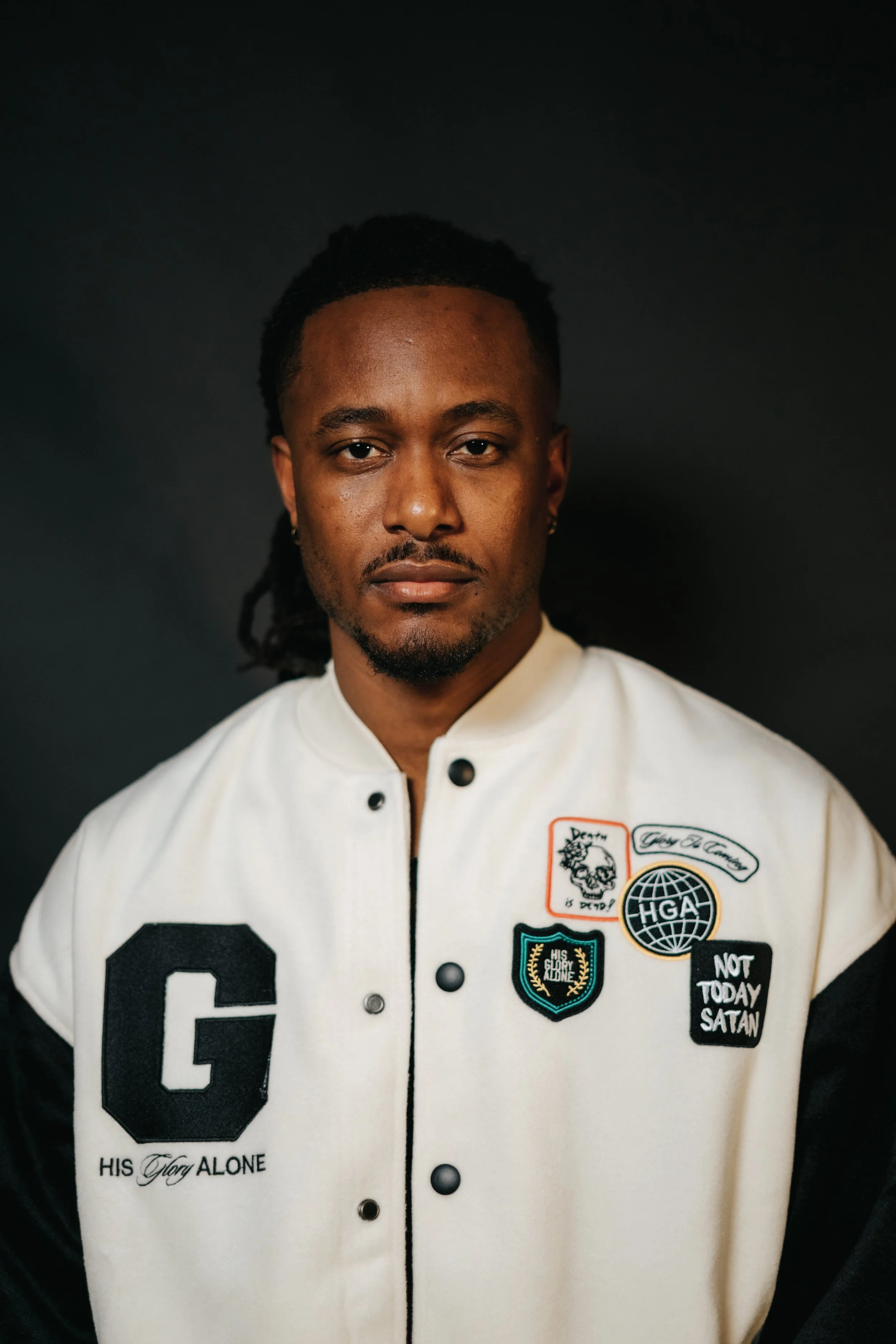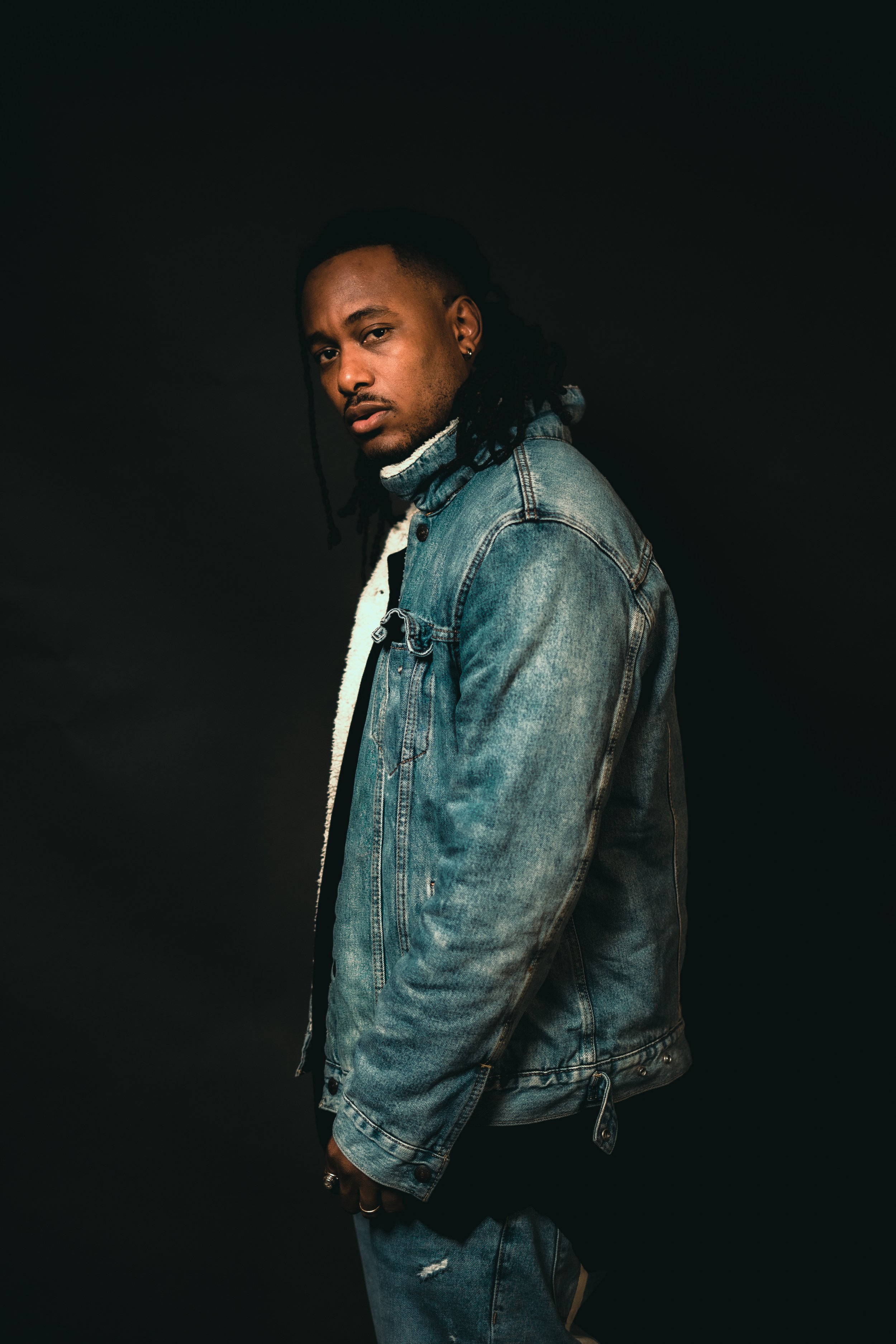Biography
A world on fire calls for fiery rhetoric—and even more fiery music.
A tumultuous 2020 exposed some of the worst in society – systemic, institutionalized injustice, constant lies from those who have taken oaths to protect, and a core identity of inadequacy quietly impressed upon an entire race for hundreds of years. As society quakes, KB has a lot to say, and an upbringing in two worlds enabled him to say it loud and clear. Personally, he uncovered strength despite being surrounded by trouble and attained faith through the example of the “strongest black woman around,” a.k.a. “mom.” The award-winning and chart-topping Florida rapper and entrepreneur speaks from the street and scripture on his fourth full-length album and debut for Sony Music Entertainment, His Glory Alone. He can blast off bulletproof bars with the best of ‘em, but he does so with a deeper message, striking a balance between trap intensity and gospel expanse—like Kendrick Lamar’s DAMN re-arranged by Kirk Franklin.
This is a message meant for today, but really tailored to a better tomorrow. This is music for hope and change earned through blood, sweat, and tears. This is what happens when KB speaks straight from the heart without a filter. This is His Glory Alone.
“I’ve always wanted to make a project where a bunch of worlds converged,” he exclaims. “It’s who I am. I lived up North. I lived down South. I was a military kid in the security of a base. After my parents’ divorce, I was in the hood. College was benign, but I’d drive back home to concentrated poverty. All of these different experiences shaped me, made me who I am, and defined my musical palette. My dream was to bring otherworldly God-centered lyricism to trap. The idea has been in my heart for a long time. I finally made it happen on His Glory Alone. The things I love most—prayer, celebrating God, and music—come together to hopefully encourage, empower, and heal.”
Following seven years on an Air Force base in Southern Illinois, he settled on the South Side of St. Petersburg, FL. Firsthand, he experienced the darkness of an impoverished neighborhood shaken to his senses by his mother and saved through the faith she shared with him.
Simultaneously, music supplemented that faith, and he rapped “in order to hear something [he] needed.” Attending Trinity College, he often preached at jails and detention centers as a student. However, he experienced a revelation. “I saw how effective it was to rap before I shared the gospel or to actually rap the gospel,” he recalls. “I kept doing it.”
Within a month of his graduation, he got married and signed his first record deal. Over the course of the next ten years, he earned four consecutive #1 debuts on the Billboard Top Christian Albums Chart with Weight & Glory [2012], 100 EP [2014], Tomorrow We Live [2015], and Today We Rebel [2017]. Not to mention, he took home “Rap/Hip-Hop Song of the Year” at the 2014 Dove Awards for “100” and amassed nearly 100 million total streams across platforms. Along the way, he also successfully launched a merchandise company, Native Supply, serving as its C.E.O.
Forming a joint venture with Sony’s Essential Sound/Provident Entertainment in early 2020, he hit the studio with longtime collaborator Cardec Drums and Wes The Writer. KB ignited his next chapter with a clear vision behind what would become His Glory Alone.
“A big chunk of art is self-expression,” he observes. “You rap about yourself, your story, and what you’re going through. I feel like I’ve done enough of that though. What I want to do is recover who God is. You’re encountering him, who he is to you, what he’s doing in the world, and allowing him to transform you. My burden for this season is to bring people’s attention to God’s glory. That’s what I’m saying.”
Following the energetic “Armies,” he introduced the album with the first single “10K.” An airy melody floats over spacious 808s before giving way to breathless raps and a trapped-out bounce. Right out of the gate, it generated 1 million Spotify streams. Meanwhile, the follow-up “Lil Boy” pairs a skittering beat with commanding rhymes as he warns, “You cannot afford to pay me to lower my voice…Watch out lil boy,” between booming bass echoes.
“When somebody was acting childish, I always heard strong black women say, ‘You’re not being a man; you’re acting like a little boy’,” he recalls. “In a culture where toxic masculinity is the only representation of masculinity, it’s important to embrace Biblical masculinity—which is to be faithful to the one who created you, stand up, and act like a man. I’m taking those lessons and sharing them.”
As if issuing a stark mission statement, the album’s centerpiece “Dark Skin” [feat. Black Violin] directly confronts the ramifications of colorism and global white supremacy. Ominous production brushes up against forceful rapping as he meets systemic injustice head on with powerful pleas, “I don’t want to be a hashtag out jogging.”
“There is internalized inferiority from a country and society built on your subjugation,” he sighs. “It’s an issue on par with police brutality and systemic injustice. When you see yourself subjugated on TV and in books and your counterparts celebrated, you begin to hate what you see in the mirror, change what you see by lightening it, and try to get closer into proximity to whiteness. We need to get Jesus on that as well, because it’s a very damaging reality. I directly talk about George Floyd and Ahmaud Arbery too. That’s an important moment for me. I needed to get it out”
Speaking up just as loudly, “Libre” locks into a Latin-style swing uplifted by nimble bars. “My wife is Latina, so my community is multi-ethnic,” he goes on. “The song celebrates black culture, and it champions the community I advocate for.”
Meanwhile, warm piano carries the heartfelt “Masterpiece” where he chronicles the moment of meeting his newborn daughter and yearning to let her know “she’s perfect as she is, and she never needs to change anything.”
“With each one of my children, there was a uniqueness to the experience of holding them for the first time,” he says. “Holding my little girl in the hospital, all I could think of was she’s just beautiful. It was beyond articulation. I wanted to give her an inheritance in the song as a recorded message she can always reference when life is hard. I’m hoping others in the world might hear their dad speaking in the song too.”
In the end, KB amplifies voices that need to be heard with energy, eloquence, and a whole lot of fire.
“His Glory Alone is the mantra of my career and my quintessential album,” he leaves off. “I’ve been saying His Glory Alone for years. God is the highest expression of the brilliance, splendor, genius, and all of the things that make you feel awe. Helping others see His grace will be my focus until I die. This album is the mountaintop of what I’ve always wanted to reach creatively. It’s everything I’ve worked towards for my whole life.”



